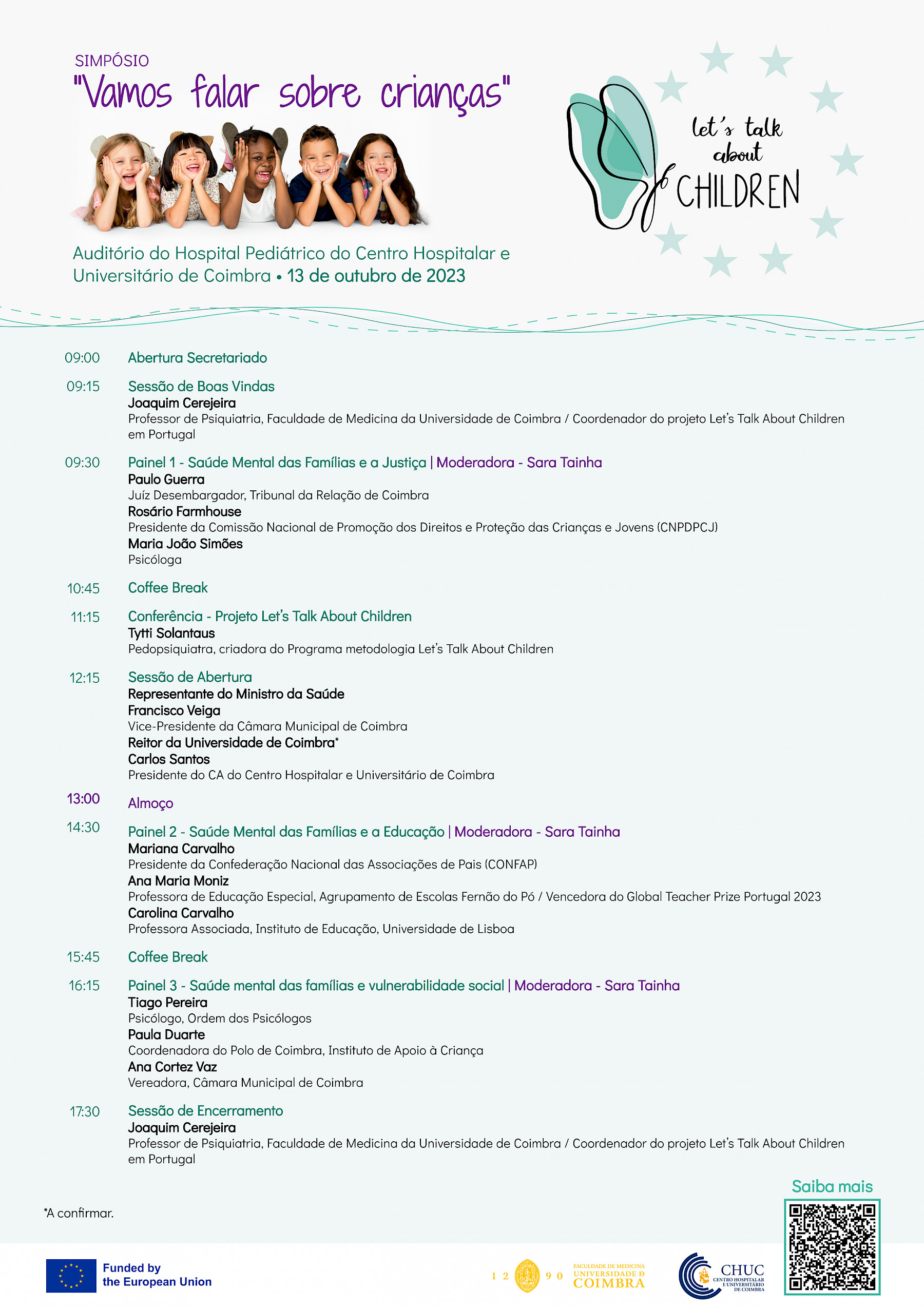Translation by Diana Taborda
The kick-off seminar of the European project "Let’s Talk About Children", (LTC), will take place on the 13th of October at the Auditorium of the Paediatric Department of the Coimbra Hospital and University Centre (CHUC), and will address the topics: Family Mental Health and Justice, Family Mental Health and Education and Family Mental Health and Social Vulnerability. The symposium will also include a lecture by child psychiatrist Tytti Solantaus, who developed the LTC method. Registration is still open and available here.
The main objective of this innovative family-focused intervention project, coordinated in Portugal by the University of Coimbra (UC), is to promote the mental health of children and youngsters from vulnerable backgrounds, such as families with cases of mental illness, facing economic deprivation or social integration problems. LTC will train health and education professionals and provide them with new skills to work with families to improve children's well-being.
Joaquim Cerejeira, coordinator of the project in Portugal and professor at the UC Faculty of Medicine (FMUC), explains that "The LTC method is designed to help families, education professionals (nursery school and middle/high school teachers) and health professionals (doctors, nurses, psychologists) work together to promote the well-being, learning and development of children and adolescents. The LTC intervention is about building a shared understanding of a child or adolescent at home and at school, and taking action based on that understanding. Our goal is to create a mutually supportive collaborative network between families, children, health and education professionals that promotes the well-being, learning and development of children and teens".
The LTC method involves discussion sessions with parents or other caregivers in order to find ways to support the child or adolescent's development. These discussions focus on their daily lives, as daily interactions and routines are very important for children's well-being. Participants identify the strengths and vulnerabilities in the lives of the child or teenager, which makes it possible to build on the strengths and find solutions to the vulnerabilities as a result of implementing the intervention.
For example, placing a child with a strong and volatile personality in a turbulent group can lead to behavioural and learning problems, which in turn may result in irritability at home. If a child is shy, an isolated home environment caused by the caregiver's depression may make the child even more withdrawn in the nursery. Situations like these are vulnerabilities. It's important to identify and address them in the child's everyday life, both at home and at school, before they escalate into a real problem.
"All families have unique strengths that family members themselves don't always recognise or value. LTC is a resource that helps families identify and develop their strengths in everyday life and find solutions to difficult situations. The programme is designed to support families and give them the tools they need to face everyday challenges," concludes Joaquim Cerejeira.
The project has received approximately €3 million in funding from the European Commission's EU4Health programme. The consortium is coordinated by the University of Turku (Finland) and includes 14 institutions from 9 countries (Finland, Portugal, Czech Republic, Belgium, Italy, Estonia, Greece, Poland and Romania). The Portuguese team is led by the University of Coimbra, through the Faculty of Medicine, with the participation of the Coimbra Hospital and University Centre.
More information about the LTC project at the University of Coimbra can be found on the project's website.

